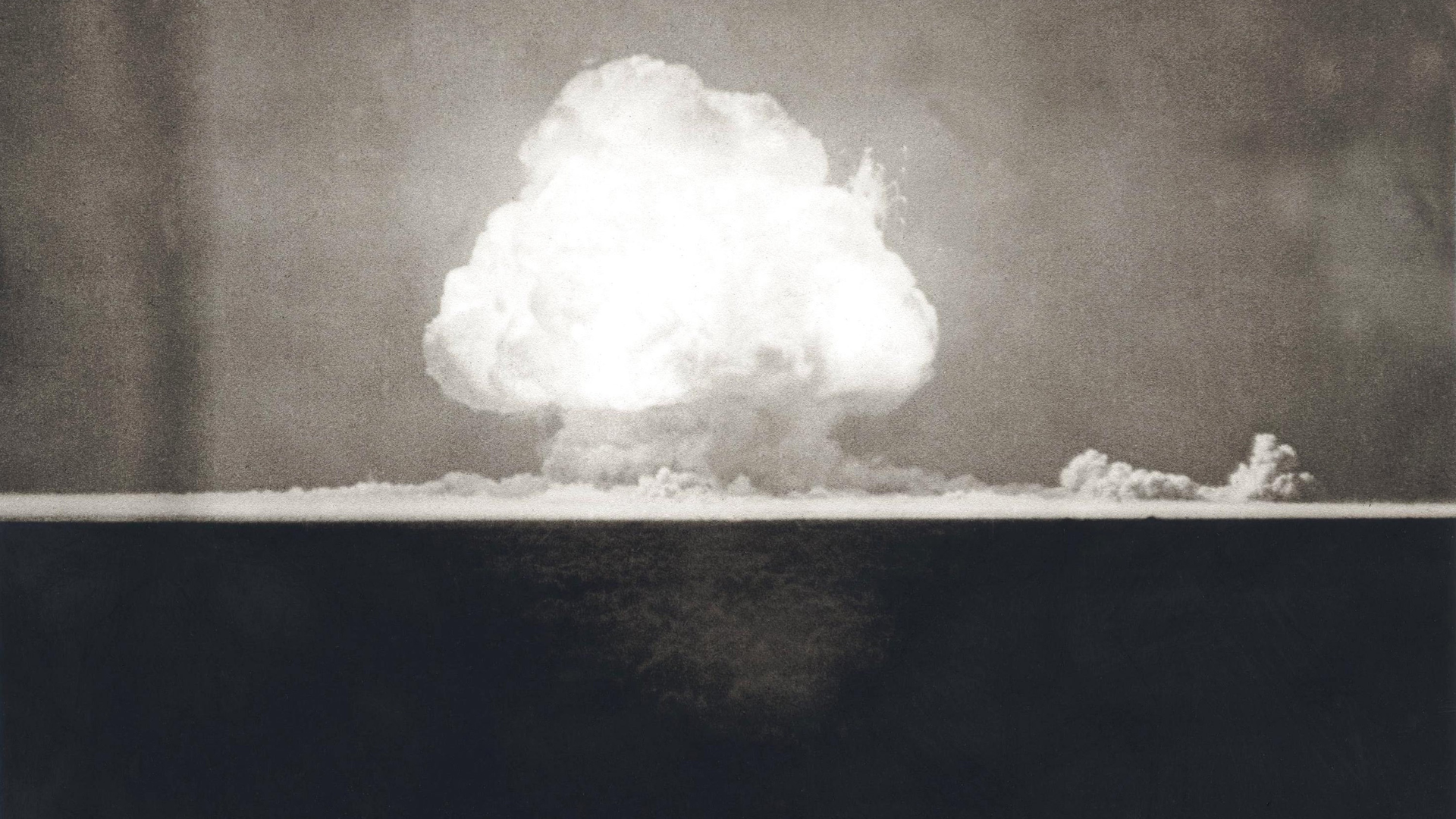When the prospect of World War Two was quietly looming over Europe, German scientists unveiled the possibility of nuclear fission. In the years that followed, horror over the idea of nuclear weapons falling into the hands of Hitler became one of the strongest driving forces behind the US effort to build the bomb – the Manhattan Project – and the man often called the “father of the atomic bomb”, J Robert Oppenheimer. But was Nazi Germany actually on the brink of developing a viable atomic weapon?
Not really, it turns out.
Nuclear fission was first discovered in 1938 by German chemists Otto Hahn and Fritz Strassman, together with physicists working at the Kaiser Wilhelm Institute of Chemistry in Berlin, Lise Meitner, and Otto Robert Frisch. Their collective work revealed that fission was displaying something truly astonishing: if hit by a neutron, a uranium nucleus would split in two, releasing a colossal amount of energy.
In April 1939, just months after the discovery of nuclear fission, Germany launched its secret program, called Uranverein or “uranium club” to harness the power of this new scientific breakthrough. Initial progress was slow since Germany had launched its invasion of Poland by September 1939, forcing many of the country’s young minds to draft as soldiers.
Nevertheless, rumors of the nuclear program had caught wind. On August 2, 1939, “the Einstein letter” was sent to US President Franklin D. Roosevelt. Written by Leo Szilard and signed by Albert Einstein, the letter warned that how Nazi Germany had the potential to develop “extremely powerful bombs of a new type” and suggested that the US should start its own nuclear program.
Germany clearly had the head start, so why did it fumble before the finish line?
Although many important Jewish scientists had fled Germany by this time, the team wasn’t short on talent. Authorized by Hitler himself, Army physicist Kurt Diebner was picked to lead the German nuclear weapons program with the aim of investigating the military applications of nuclear fission.
Another major player in the program was Werner Heisenberg, the pioneering quantum physicist known for the uncertainty principle (and the namesake of Walter White’s meth-peddling alias). There were also a host of other well-established scientists such as Abraham Esau, Paul Harteck, Walther Gerlach, and Erich Schumann.
However, its all-star cast wasn’t enough. Some clues about the project’s failure can be unearthed in the transcript of a conversation between Germany’s leading nuclear physicists on August 6, 1945, the fateful day the US dropped an atomic bomb on the Japanese city of Hiroshima.
Heisenberg seems to blame the lack of people working on the program, noting that the US had 180,000 scientists working on the Manhattan Project, which was far more than the Germans had. Harteck blamed the lack of money funneled to the project.
Another suggestion is that the German team was full of big egos that let down the side of the team. Physicist Horst Korsching said: “the Americans are capable of real cooperation on a tremendous scale. That would have been impossible in Germany. Each one said that the other was unimportant.”
The Trinity Test: the US beat Germany in the race to deploy a nuclear weapon on July 16, 1945.
Image credit: Everett Collection/Shutterstock.com
One other explanation is that the Nazi elite was not willing to hedge their bets on nuclear technology unless there was demonstrable proof it could win the war. At the time, this was all unchartered territory, and Hitler was far more invested in the V-2 long-range rockets, which had already shown promise.
In his book about the history of Nazi nuclear ambitions, Professor Mark Walker remarks that the German nuclear program had become “frozen at the laboratory level” during the Second World War. Wracked by organizational problems, the scientists were left striving to build a primitive nuclear fission reactor – and they even failed at this relatively “modest task,” Walker writes.
Research from 2019 shed further light on the problems that the Germans faced. Scientists at the University of Maryland attempted to track down the uranium cubes used by the German team and concluded that the central lab didn’t have enough to build a self-sustaining nuclear reactor.
Ironically, there were other stocks of uranium elsewhere in Germany, but their tactic of having separate and rivaling experiments meant that they simply didn’t have sufficient materials to work with. Just as Korsching had suggested, the US Manhattan Project took a much more collaborative approach that pooled and disturbed its resources wisely, which Germany didn’t
The German program was also hindered by a major military upset at a crucial time. Following their invasion of Norway in 1940, the Germans took over the Vemork hydroelectric power plant and used it to produce heavy water, a vital ingredient for nuclear reactors.
Realizing its integral role for the Nazis, Allied forces conducted a series of strategic bombings against the plant, which continued to dwindle their heavy water supplies. The major blow came in 1943 when a Norwegian commando attacked the facility, followed by yet another Allied bombing raid. Attempts to transport the remaining supplies out of the country were foiled by Norwegian resistance fighters who sunk the ferry on Lake Tinn.
“There were so many things that were just luck and chance. There was no plan. We were just hoping for the best,” Joachim Ronneberg, the Norweigian leader of the commando team that blew up the plant, told the New York Times in 2015.
If this bold mission had failed, he suggested, then London may have ended up “looking like Hiroshima.”
Wracked by this array of problems, the Nazi nuclear program appears as if it was doomed to failure. However, this is only clear now with the benefit of hindsight. Unaware of this fact at the time, paranoia over the Nazis’ nuclear ambitions only helped to fuel Oppenheimer’s bittersweet effort to hurry in the atomic age.
Source Link: Could The Nazis Have Beaten Oppenheimer To Make A Nuclear Bomb?
